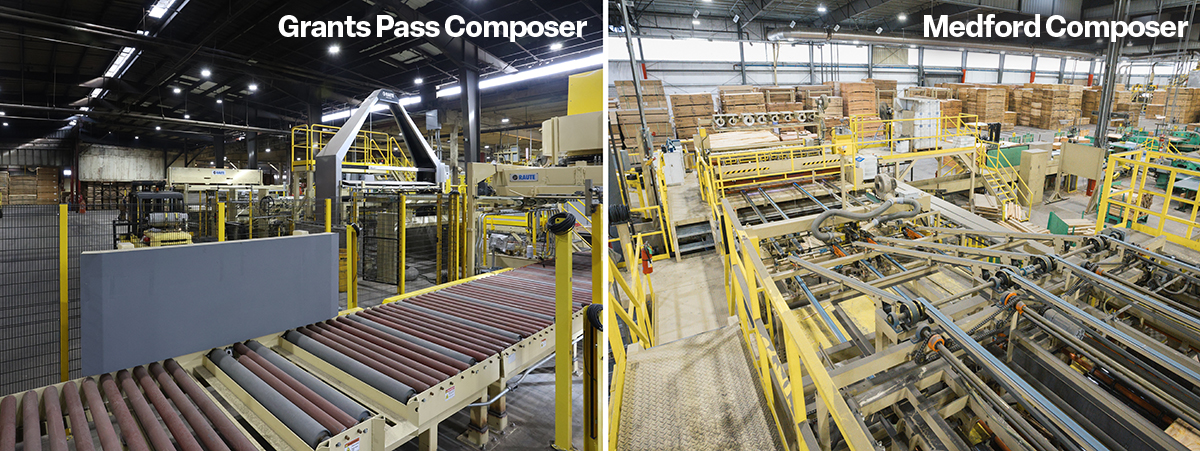Equipment Spotlight: New Composers at Medford & Grants Pass

Composers in our facilities give our lower grade veneer a second chance. The quality control team at Timber Products works diligently to ensure that the veneer produced by the company is constantly checked as it goes through the different stages of production. On some occasions, veneer can become damaged as a result of bending, chipping, crushing, etc. If a sheet of veneer is found damaged, it will be sent to one of the most noble pieces of industrial wonders we have in our mills: The composers.
But what makes these machines great? The composers upgrade veneer that is considered waste (D-) to a specific grade for our plywood production. The way they’re able to achieve this is by taking the veneer through a series of stages conducted by only one operator. First, the operator selects the width, length, thickness and desired grade. The veneer sheets are then fed into the composer manually after it has gone through the Metriguard scanning system. Then, veneer sheets will go through a scanning system to detect the defects on its composition. Once the defects are identified, it is then sent to the clipper, where the composer clips out the parts to be utilized to create a new sheet while removing the defective parts of the veneer. The defective veneer falls onto a beltline that sends it to be used in hogs that create steam for other machine centers, or it is chipped and used in other products. That good, clipped veneer waits in place until another piece of acceptable veneer is identified by the composer and is joined together using a hot melt glue/string and glue dot application that ensures a solid and uniform joint. Once the pieces of veneer are combined to make a full sheet, the veneer goes through a dimension clipper to get the sheet clipped to a desired width.
Our Medford Plywood and Grants Pass Plywood mills recently installed two new Hashimoto composers, an 8’x8’ model and a 10’x8’ model respectively. The decision to install these new pieces of equipment came from the fact that the old composers in both mills were reaching the end of their life, making repairs costly or even not supported, which caused significant downtimes and slowed down production. According to Glenn Rossi, old veneers wasted a lot of usable wood: “We estimate that 20% of the potentially usable wood was wasted by the old compressors”. The new composer in Medford is capable of processing and stacking 4’x4’, 4’x8’, and 8’x4’ veneer sheets at a speed of 45m/min or 3500 or more sheets on an 8 hour shift. The composer in Grants Pass is capable of processing 4’x2, 4’x4’, 4’x8’, 4’x10’, 8’x4’, and 10’x4’ veneer sheets at a speed of 30m/min. Both machines are providing Timber Products with higher production rates and reducing waste, allowing us to better meet our customer’s needs. Keep an eye out in 2024 for more equipment spotlights, as we finish more capital improvements in our mills!
